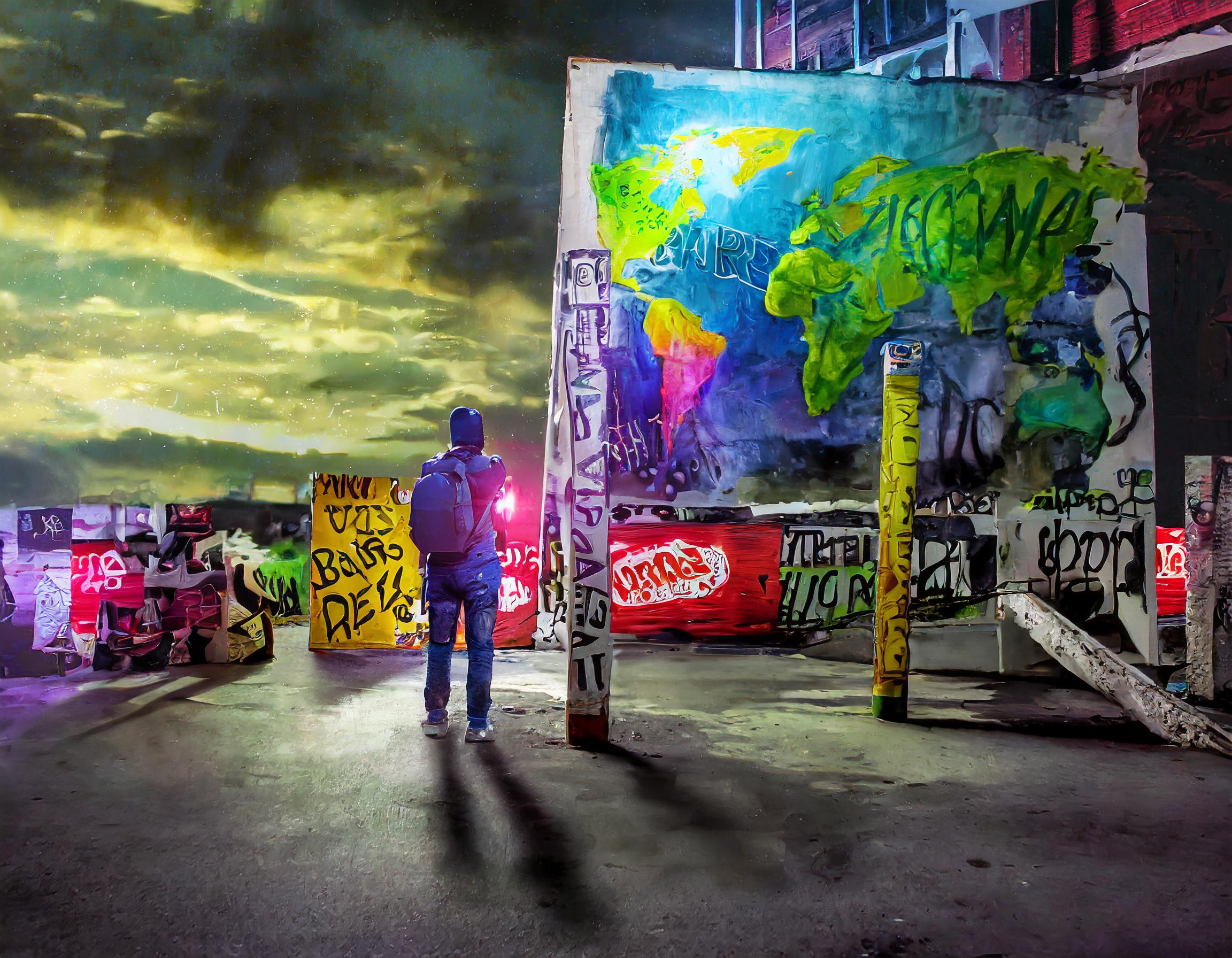
What Role Should Brands Play in a Global Crisis?
| Once upon a time, brands and politics didn’t mix… or at least some topics were considered taboo by most organizations. The rise of social media, the constant expression of personal opinions, the speed at which misinformation flows, corporate interest in customer values, and even commitments to purpose, have changed how many brands communicate in a post-COVID world. Yet, when complex geopolitical issues intensify and combine with entrenched and often fiery viewpoints, it can become challenging for many products, services, or companies to serve the best interests of all their stakeholders. Between October 16 and 26, The Internationalist asked its worldwide community of marketers how brands should respond to a global crisis. We received an immediate outpouring from people in all regions— The Americas, Europe, the Middle East, and Asia, as well as from those with marketing responsibilities ranging from global to local. Most respondents also posted optional comments to help clarify perspectives beyond simple survey choices. While marketers are certainly “divided” in their answers regarding whether “brands should officially express support or denounce war or acts or terrorism,” they are not necessarily “polarized” into uncompromising positions. Most were trying to find a reasonable middle ground that made intellectual and emotional sense for their brands, companies, customers, and employees. (Politicians could learn from them.) While The Internationalist and our INSIGHTS team had no preconceived ideas about potential outcomes to the survey’s opening “Yes or No” question, we were nonetheless surprised by the razor-thin margin exhibited by the results. The YES option— “Brands expressing support or denouncing crisis situations is an extension of being a responsible brand” was chosen by 51.4% of respondents. While the NO option— “Some topics should be left to world leaders…” was selected by 48.6%. EXPRESSION… |
 |
| So, while people appeared to be essentially split on whether brands should express support or denounce specific events, the numerous write-in comments captured critical nuances to a simple “Yes or No” answer. You’ll see from the series of remarks below— ranging from support of brand expression to believing in a “hands-off” approach— there is common ground in many of these considerations. PROGRESSION OF COMMENTS… “Brands have power & influence over people’s lives, whether they like it or not. It is important that brands understand how they can use that power for the good of the people they serve. Government & non-profits can’t do it alone; it takes a community“ “When issues directly impact your stakeholders, those stakeholders expect support and transparency. Silence is a statement.“ “If brands (companies) truly care about stakeholders (employees, shareholders and suppliers), then they need to care and be clear on their perspective. The challenge: logic no longer applies when emotion takes over and people are divisive & political.“ “Any expression needs to be handled in a thoughtful, nuanced way and be authentic.“ “There really isn’t a one-size-fits all answer. There can be exceptions to supporting or denouncing– perhaps when the company has a number of employees or clients in impacted regions. Or if the company will be impacted in some way due to supply chain issues created by a war, etc.“ “Brands in global crises should show empathy but avoid exploiting it for marketing purposes. Balance is key in expressing support or denouncing events.“ “Just because a company has an audience and a platform to make a statement doesn’t mean they must weigh in – simply said, just because you can, doesn’t mean you should. Brands should support their employees and ecosystems if a connection exists.“ “We are Israeli founders directly affected by the current turmoil. But we have Muslim employees that live in places that are less free and the mere association with Israelis could put them in harm’s way, so our policy is leave politics at home.“ “Having been involved in various questions at times of major crisis, my experience is that only harm can come from ‘taking sides.’ The company and brand should be seen as caring for all victims but never taking sides.“ “I answered no but if we had employees or significant business dealings in Israel right now, I would probably answer differently. There’s also a difference between internal and external response. You can be there for your employees regardless.“ “The public should not impose brands to take a position for everything, especially for single specific acts.“ “For 95% of all brands, they should stay away from these types of conflicts. The exception are brands that were built on activism and social causes (i.e., Ben and Jerry’s).“ “Brands and politics don’t mix well.“ “Where is the “it doesn’t matter at all” choice? Because history proves that, by and large, it truly doesn’t matter. Some brands have built an identity around causes (Ben & Jerry’s) but for most brands this is virtue signaling and people don’t care.“ ACTION… The next question looked at specific actions during a crisis, and respondents could choose multiple options. Clearly, employee safety and regular communications headed the list with big majorities—89% and 86% respectively. So, regardless of whether a respondent believes in expressing brand support in a crisis or not, nearly all saw the value of focusing on employee safety in affected areas and regularly communicating internally on staff safety or policy decisions. More than half (60%) believe in supporting emergency charities. Perhaps most interesting is that a brand or company’s STATED PURPOSE was seen as being MORE SIGNIFICANT in determining actions in a crisis than EMPLOYEE or CUSTOMER perspectives. This solidifies the seriousness to which purpose has risen within the corporation as a FOUNDATION for DECISION MAKING. Nearly one-third (31%) stated that their company policy is to refrain from allying with any parties in a geopolitical crisis. |
 |
| While 7% wrote in “other” perspectives, one stood out as a useful concept of note: “Companies should not just be reactive to a crisis. They should align in advance what they support and action it throughout the year. For example, if you support refugees, do so all year long and when a crisis arises, increase your support. “ FOLLOW ON… The answers to the survey’s third question about the timing of responses were more straightforward. More than half (56%) thought it best to wait to understand how a situation unfolds before making statements or taking action, particularly in light of changing information or misinformation that often accompanies fast-moving crises or highly-emotional situations. |
 |
| Is the C-Suite Experiencing “Crisis Fatigue”? Marketing leaders are now tasked with expanded responsibilities of extraordinary complexity and greater accountability. In addition to the current emphasis on corporate purpose, sustainable solutions, and shifting opinions regarding ESG standards, today’s marketers must champion consumer trust, provide unparalleled brand experiences, lead data strategy, rally employees throughout the globe, continually demonstrate significant return on investment… and accomplish it all faster. Add to that, general business concerns about the exponential acceleration of technology, as well as both the future of work and the workforce of the future. However, many business leaders are now suggesting that the C-suite may be experiencing “crisis fatigue”– even when terrorism, war and human suffering should conceivably be met with a sense of moral clarity. Leaders from the World Economic Forum to the Business Roundtable advocate for greater corporate responsibility, yet executives still grapple with a broad range of sensitive topics from employee protests over social injustices to community concerns about environmental management to other public policy debates. Corporate culture and brand values are certainly more difficult to foster when society is divided. However, marketers, at least in terms of their response to a survey on global crises, seem to be fairly level-headed about their roles. |
 |
| The Internationalist conducted this survey, “What Role Should Brands Play in a Global Crisis” during October 16 through October 26, 2023, as part of our Internationalist INSIGHTS Series, among marketers worldwide to explore how the continual evolution of marketing is affecting how today’s CMOs and their teams are understanding priorities, tackling obstacles, and resetting goals. To keep the survey short and relevant, responses close when completed submissions from 50 top marketers are received and all regions of the world are represented. These results help to shape The Internationalist‘s content, think tanks and initiatives around marketers’ core concerns. |



